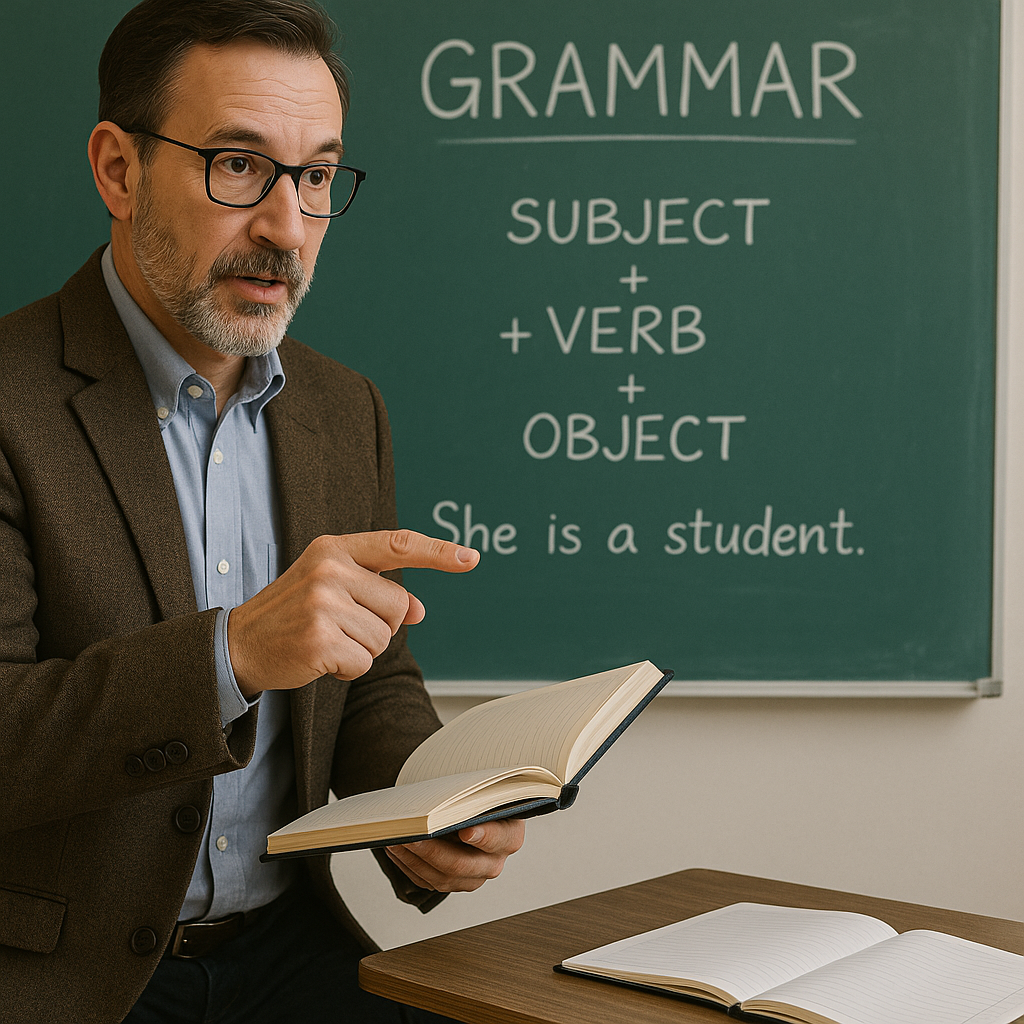Grammar Fox: Your Clear, Friendly Guide to English Mastery

Hi, I’m Jordan Fox, your guide to making English click.
Learning grammar shouldn’t feel intimidating or dull. Here at Grammar Fox, I’m here to help you break down complex grammar into simple, practical steps you can actually use in your writing, speaking, studies, or professional life.
I believe grammar is not just about rules; it’s about building confidence in how you express yourself. Whether you’re preparing for exams, refining your professional English, or just aiming to feel more natural in your conversations, you’re in the right place.
What You’ll Find Here:
- ✅ Straightforward grammar guides explained in a clear, human voice.
- ✅ Real-world examples so you know exactly how to apply each grammar point.
- ✅ Idioms, vocabulary expansions, and collocations to help you sound natural, not robotic.
- ✅ Practice exercises and quizzes to lock in your learning.
- ✅ Encouragement and clarity every step of the way.
Popular Grammar Fox Guides:
- Climate Change Vocabulary: A Comprehensive Guide
Speak confidently about today’s critical global issues. - Quote Integration: Mastering Seamless Incorporation
Strengthen your essays and reports with well-integrated quotes. - Adverbs of Degree
Add precision and nuance to your English. - British vs. American Spelling
Write consistently and confidently for any audience. - Business Idioms List
Sound professional and natural in your meetings and emails.
Why Learn with Me?
I’ve worked with learners from all backgrounds and levels, and I know how overwhelming English grammar can feel. My approach is simple:
- Clarity First: I explain concepts in everyday language, not jargon.
- Practical Focus: Everything you learn here will help you communicate better in real-life situations.
- Encouraging Atmosphere: I’m here to guide you with patience and positivity.
Ready to Level Up Your English?
- Start with Grammar Guides tailored to your goals.
- Take a Grammar Quiz to check your understanding.
- Subscribe for weekly grammar tips, idioms, and practice sent directly to your inbox.
Let’s Build Your Confidence, One Lesson at a Time
I’m Jordan Fox, and I’m here to make English grammar clear, practical, and even enjoyable for you. Let’s keep it simple, consistent, and empowering—so you can express yourself with confidence in every conversation, email, and essay you write.
Meet Jordan Fox
Hi, I’m Jordan, the creator behind Grammar Fox.
I know that English grammar can feel like a maze of rules and exceptions, and I’m here to help you navigate it with clarity, encouragement, and practical examples you can actually use.
For years, I’ve helped students, professionals, and lifelong learners feel confident using English in their studies, workplaces, and daily conversations. I believe grammar isn’t just about rules; it’s about empowering you to express yourself clearly and building your confidence one step at a time.
Here at Grammar Fox, you’ll find clear grammar explanations, vocabulary-building lessons, and idioms that will help you sound natural, not robotic. Together, we’ll turn English learning into an enjoyable, confidence-building journey.
When I’m not creating grammar guides, you’ll find me with a good book, a cup of coffee, and a notebook, ready to catch those moments of language inspiration to share with you.
Here are some post links Below, So, Master English Grammar with Confidence
- 100 Body Part Idioms and Their Meanings
- 100 Idioms About Money and Finance and Their Meanings
- 100 Animal Idioms and Their Meanings
- 100 Fruit Idioms and Their Meanings
- Idioms About People: A Comprehensive Guide
- Mastering Common English Idioms: A Comprehensive Guide
- Mastering Possessive Adjectives: Types, Examples, and Usage
- Grammar & Grub: Mastering Fruits That Start With “G”
- Car Idioms: Mastering Automotive Expressions in English
- Driving Idioms: Mastering Figurative Language on the Road
- Mastering Kitchen Utensil Names: A Comprehensive Guide
- Coordinating Conjunctions: Usage, Examples, and Exercises
- Mastering Determiners: Types, Examples, and Usage
- A Comprehensive Guide to Green Vegetables: Names and Usage
- Idioms About Teeth: A Comprehensive Guide
- Silent Letter Words List: Mastering Tricky English Spellings
- Mastering Phrasal Verbs with “Make”: A Comprehensive Guide
- Delving into the Animal Kingdom: A Grammatical Guide to Animals Starting with ‘D’
- Mastering Subject-Verb Agreement: A Comprehensive Guide
- Exploring Animals That Start with Q: A Grammatical Guide
- Beyond “Good Morning”: Diverse Greetings for Every Situation
- Diverse Ways to Express Anniversary Greetings in English
- Mastering Difficult English Words: A Comprehensive Guide
- Radiant, Remarkable, and Righteous: Positive Adjectives Starting with R
- 50 Other Ways to Say ‘Long Time No See’ (With Examples)
- Mastering Modifiers: Types, Examples, and Usage
- Glowing Grammar: Positive Adjectives That Start With ‘G’
- Mastering English Pronunciation: V vs. W Sounds
- Mastering English Idioms: A Comprehensive Guide
- Mastering Small Talk: Essential Questions and Usage
- Idioms for “Never Going to Happen”: A Comprehensive Guide
- Mastering Congratulations: Diverse Ways to Celebrate a Promotion
- Mastering Present Continuous Questions: A Comprehensive Guide
- Verb Examples: Mastering Verbs in Sentences
- Idioms for Starting Something: A Comprehensive Guide
- Linking Words: A Comprehensive Guide with Examples
- Mastering Prefixes and Suffixes: A Comprehensive Guide
- Diverse Ways to Say “Safe Travels”: A Comprehensive Guide
- Change into Negative Sentence-Affirmative to Negative sentence worksheet
- Examples of Positive Sentences in English: Structure and Usage
- Diving Deep: Mastering Idioms with Water in English
- Mastering Helping Verbs: A Comprehensive Guide with Examples
- Mastering Phrasal Verbs with ‘Keep’: A Comprehensive Guide
- Mastering Inseparable Phrasal Verbs: A Comprehensive Guide
- Mastering Finance Vocabulary: A Comprehensive Guide
- Beyond “In Conclusion”: Diverse Ways to Summarize
- English Verbs List with Meanings: A Comprehensive Guide
- Work Idioms: Mastering Common English Expressions
- Chilling Chatter: Mastering Idioms About Cold Weather
- Conquering ‘C’ Verbs: A Comprehensive Guide to Usage and Mastery
